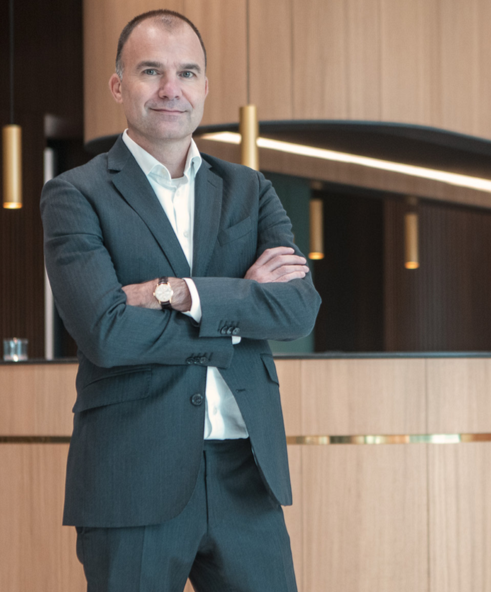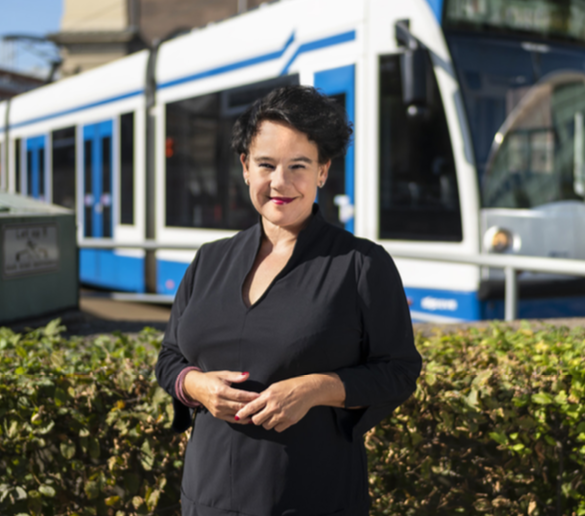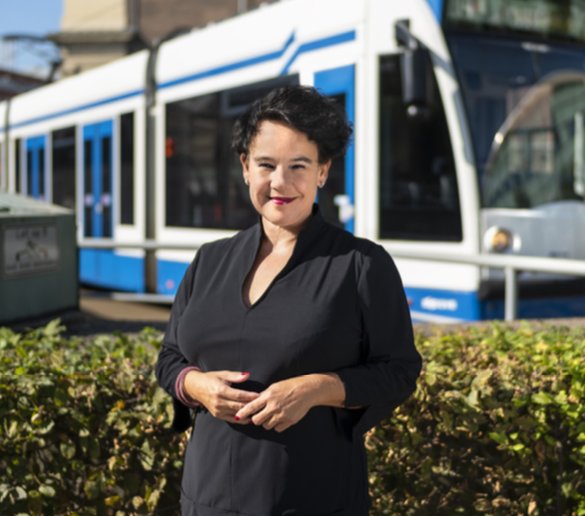Striking a better balance
At the end of September, more than 20 major organizations in the Amsterdam metro region signed an employer declaration in which they committed themselves to spreading out working hours and transport use during and after the COVID-19 pandemic. This affects some 38,780 workers employed by the City of Amsterdam, Noord-Holland Province, the Amsterdam Transport Authority, Loyens & Loeff, ABN AMRO, SADC and Royal Schiphol Group. The Dutch Railways (NS) and other regional transport providers are also involved. Under these agreements, working from home more will become the norm. Those who do commute will plan their journeys during quiet times, outside rush hours. For those travelling longer distances, options will include some combination of public transport, bike or e-bike and car or carshares. All with a view to ensuring better access, less gridlock, fewer delays and cleaner air. Hello Zuidas talked to Sharon Dijksma, chair of the Amsterdam Transport Authority, and Patrick Van Oppen, partner at Loyens & Loeff, which is one of the signatories.
Why was a change needed?
Dijksma: ‘We’ve been working with various employers in the Amsterdam metropolitan region for a long time now on measures to reduce rush hour congestion. By signing this document, we’re making firm agreements for both during the pandemic and afterwards. If 10 to 15% more people work from home, that’s 85,000 to 170,000 fewer journeys a day in the Amsterdam metro region , meaninga big reduction in rush hour peaks. The important thing is that employers set up solid systems for teleworking and help employees towards a better distribution of working hours and kinds of transport they use.’
Why is it important for Loyens & Loeff to sign these employer agreements?
Van Oppen: ‘As an employer of more than 700 people in Amsterdam, we feel it’s important to shoulder our share of the responsibility for keeping Zuidas and the Amsterdam region accessible. Part of our CSR ambition is to reduce our footprint, so we’re also actively seeking ways to do that. By having our people work from home more, we can reduce CO2 emissions as well.’ What kind of assistance is available for companies making these changes? Dijksma: ‘Stichting Breikers offers a free service to help employers transition to smarter and more sustainable mobility and logistics. Since every company and worker has different mobility needs, tailored advice is essential. There’s no need for employers to reinvent the wheel. We’ve also developed a new platform offering tips and cases, on Zowerkhet.nl. This nationwide platform aims to inspire and support employers and employees to make smart(er) travel choices around working and commuting.’
How have people inside the firm responded to this change?
Van Oppen: ‘Just before corona we’d already started rolling out a project where we gave every employee a laptop with new software installed. Fortunately, we managed to round off this project in all our countries in spite of the lockdown, so now all our employees can work effectively at home. Reactions have been very positive. People who were sceptical at first have noticed that it’s quite doable to work from home. Of course it’s also nice to see your colleagues regularly, so the trick is to strike the right balance.’

Looking ahead, why are these agreements important after we come out of the pandemic?
Dijksma: ‘The COVID-19 measures have changed our mobility behaviour. We’ve been able to experience a different way of dividing working hours between home and the office. Here is a chance to permanently restructure where we work, and how and when we make the journey there. Many people are working from home right now and will continue to do so for at least part of the week.’
How will these agreements affect Loyens & Loeff’s employees?
Van Oppen: ‘At the moment we’re still in the middle of the pandemic, so not much will change. For the time being, we’re still working from home as much as possible. At an organizational level, we have noticed that this is going well and that we’re still supplying the same top-quality service. What we’re experiencing now has put this topic on the agenda and we’ll have to look at where we want to take it.’

Why is it so important to get more companies on board?
Dijksma: ‘A better division of working from home as opposed to working at the office would have direct benefits for the accessibility of the region as a whole, but especially Amsterdam. Also in terms of shorter journey times, fewer CO2 emissions, and less stress related to traffic queues and delays. A smarter distribution of commuter traffic over the day and week and across different transport modalities offers good prospects for keeping the Amsterdam metro region accessible. That’s vital for the people who live here and will also strengthen the regional economy.’ Van Oppen: ‘We’re all part of the solution, so we need all businesses in the metro region to get on board. If we all examine what we can do to make employee commutes smarter and more sustainable, we can keep the region accessible, help clean the environment and our staff will have less traffic stress.’
